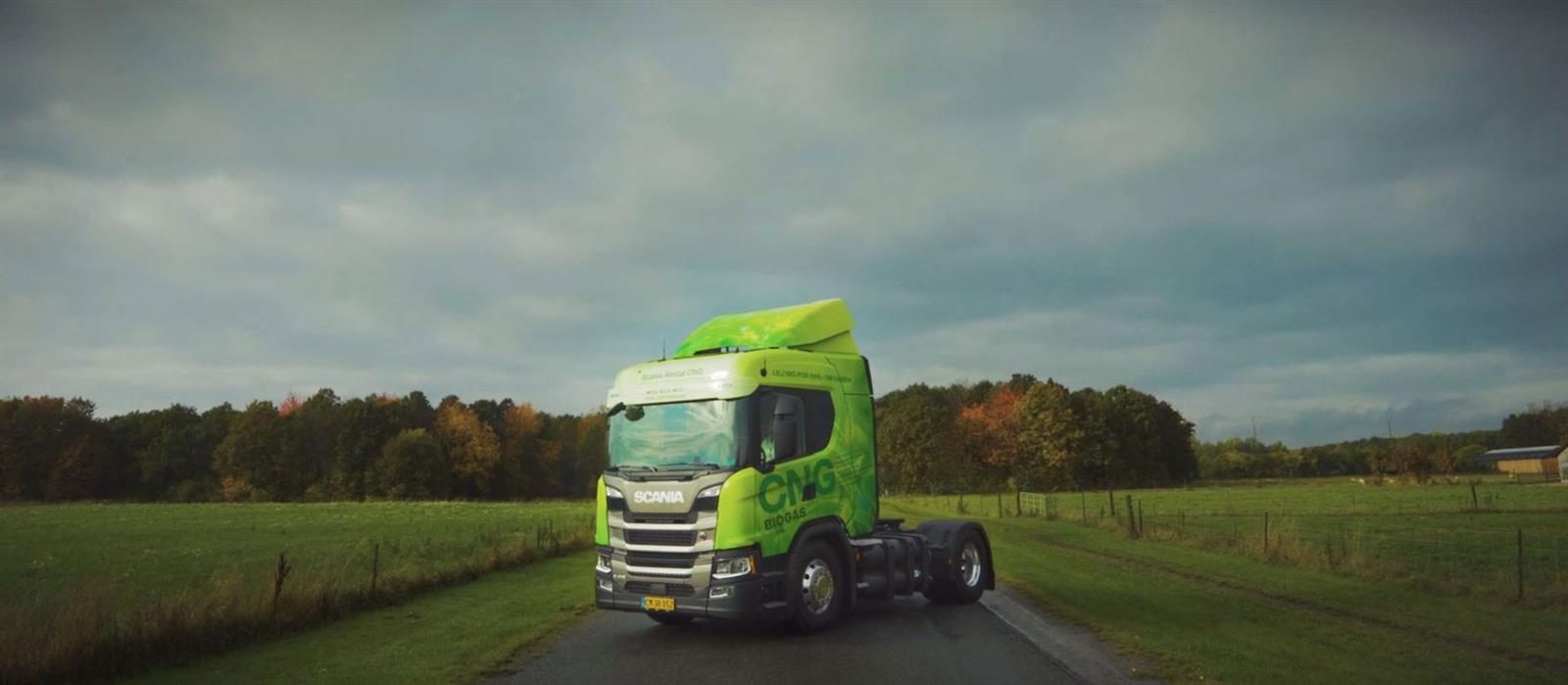Scania Danmark offers customers trial rentals of biogas truck

A scheme in Denmark aims to boost the uptake of a fossil-free transport solution.
Anaerobically digested waste can be processed for use as biogas fuel and shifting to biogas operations is currently the quickest, most economical way of reducing the heavy transport industry‘s carbon footprint.
It‘s a simple solution whose time is here and now, yet many customers are reluctant to make the switch to biogas. In response, Scania Danmark has come up with an imaginative scheme: it is offering a compressed biogas G 410 tractor for rent.
“In Denmark, only 0.5 percent of trucks run on gas. There is a definite potential to substantially raise that share,” says Scania Danmark‘s sales director Anton Freiesleben. “By offering customers trials through short-term rentals, we hope to demystify gas propulsion. We want to let customers discover for themselves just how good our modern gas trucks actually are and how simple they are to operate.”
There are now 17 filling stations in the country for compressed gas and the only fuel available at these stations is biogas.
“So, we can claim more than 100 percent CO2 reduction. How, you might ask, can we exceed 100 percent? The answer is that if the organic waste from agriculture had not been anaerobically digested to biogas, it would be spread as fertiliser on farmland, emitting methane which is a much more harmful greenhouse gas than CO2.”
The biogas truck for rent is a 4×2 tractor that suits the many common transport operations in Denmark. A tractor is more standardised than a rigid truck, which is usually configured for specific transport tasks.
Scania Danmark estimates that the added total operating cost for a biogas tractor compared with a conventional diesel truck is DKK5000 per month (NZ$1130), calculated on an annual mileage of 80,000km.
“However, broken down by load, this amounts to an additional DKK0.15 (NZ$0.034) in transport costs for a litre of milk, which is nothing. At the same time, you can make a real difference in combatting climate change,” says Anton Freiesleben.





